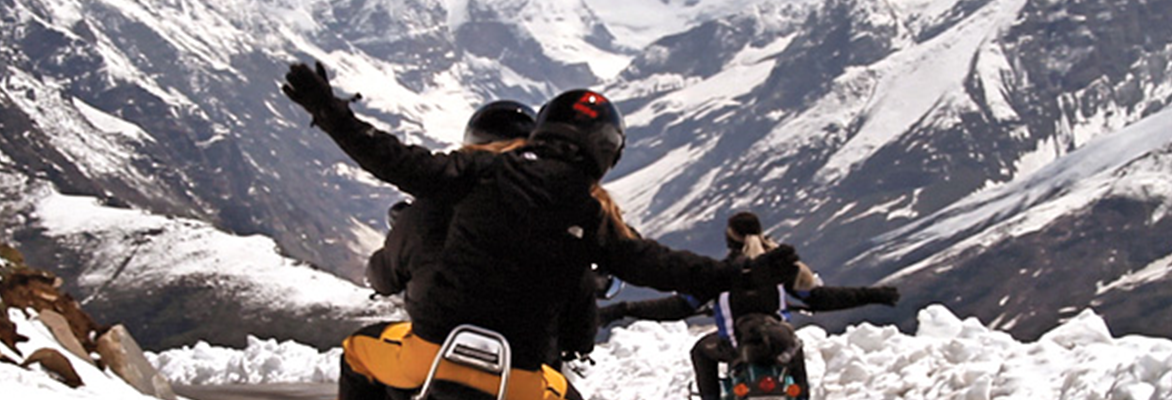Adam Schomer '97 connects with spirituality in filmmaking

Documentary filmmaker Adam Schomer '97 traces the beginnings of his spiritual quest, and its relation to his fascination with India, to his years at Cornell as an all-Ivy soccer player and engineering student in operations research.
"A friend, who I'm still friends with, loaned me a meditation tape and I took to it and it changed me," Schomer says. "You'd see me with the long hair and Birkenstocks, meditating in the goal before the game. I had a lot of fire and energy, and meditation really helped me focus on just playing the game."
Schomer's award-winning film "The Highest Pass" follows his journey into the Himalayas by motorcycle with his guru, Anand Mehrotra.
Being a film director was far from his first career choice. So was teaching yoga to L.A. Galaxy soccer players, including David Beckham. After college, he went to Ecuador, learned to speak Spanish and played soccer there. Then he started consulting for Ford Motor Co. as an engineer and coaching soccer on the side.
"I eventually dropped engineering, since I was making enough without it," he says, "then I started to dive into the arts." Schomer trained at Second City for two years, performing comedy and writing sketches. He also worked on short films and commercials before he moved to Los Angeles.
"Laying a foundation for my life is what it came down to," he says. "That inciting moment really was here in L.A.; when the traditional mindset would say I should be developing my career but something in me really knew what was most important. At that point, having gone to India twice already, I decided to really go study intensely one-on-one with my teacher."
On his third trip, in 2010, Schomer studied with Mehrotra.
"I was there for six weeks along the banks of the Ganga, doing meditation and talking with him and writing down what we talked about for a book coming out later this year," he says. Then Anand mentioned an idea for a motorcycle trip to the highest passes in India, in the region of Ladakh (which translates to "land of passes").
"He just knew he wanted to ride that road," Schomer says, and Anand asked him, "Do you want to come?"
Schomer's prior riding experience was defined by a moped accident a year earlier. "I didn't know how to ride, I thought riding was dangerous, but I said yes; and I'll figure out how to get over this later," he says. "We decided to invite others and make a documentary about it. I knew we were taking on an amazing and difficult adventure with these people that would change their lives in many ways."
The 21-day journey was more than 2,000 kilometers long, and the riders and film crew faced dangerous "road killer" trucks in the Himalayan foothills, and were beset with altitude sickness above 16,000 feet.
"At these Himalayan altitudes, you are not going to get a break for the body," Schomer says. "You're just living with a pounding headache for three days."
Schomer worked on the story of the journey as it was happening; focusing on the travelers' conversations with Mehrotra and including a visit to an oracle channeling Tibetan spirits. Snow and slush made the going more difficult, blocking the road at 16,000 feet, on their way to the highest elevation the group reached, above 18,000 feet.
"For the audience it's really beautiful, this remote part of the world," Schomer says. "You find yourself eventually connecting to a sense of ease, otherwise you get so stressed out because it's sensory overload."
The film premiered in Los Angeles in April, and has won awards at the San Diego, Naples and Topanga film festivals. A DVD release is set for Aug. 28, and screenings continue around the United States.
Schomer is currently finishing postproduction on another film, "When the Dust Settles," about one woman's relief effort for people affected by 40 years of nuclear testing in Kazakhstan. He will return to India in September to motorcycle and hike to four sacred peaks in another part of the Himalayas, a trip he may also film.
"At an engineering level, all that education helps out in documentaries," he says. "It's a puzzle when you're taking all this footage; it's a real challenge in putting this story back together in a creative way."